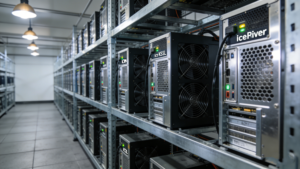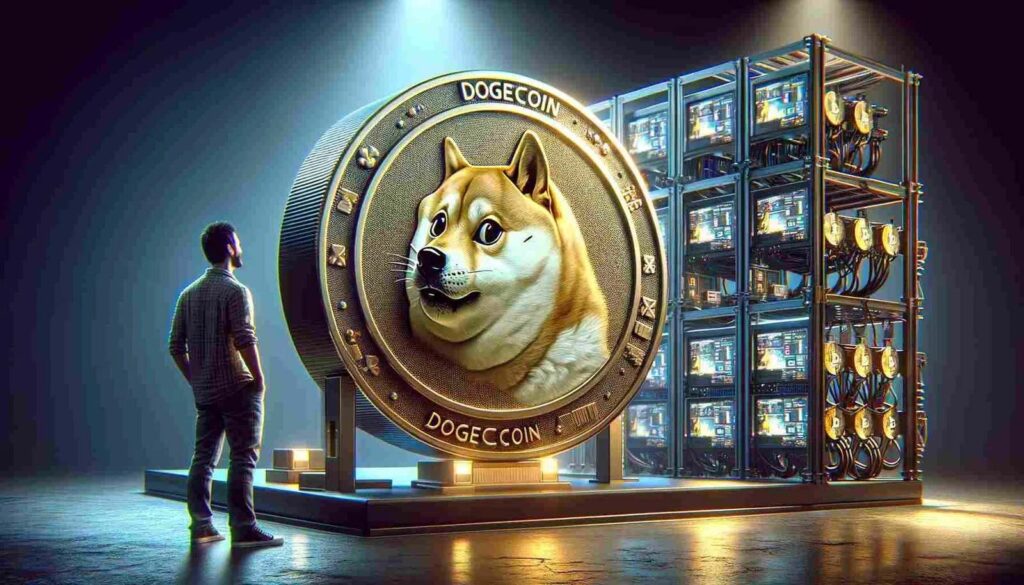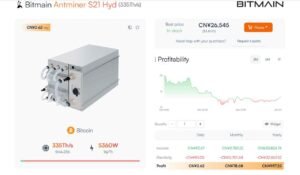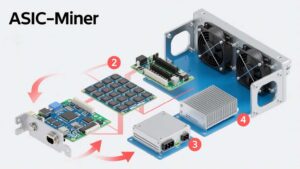
Imagine you just set up your first mining rig, eagerly watching the screen, waiting for that first Dogecoin reward. But then you wonder—how long will it actually take to mine one? Is it minutes, hours, or even days? What factors influence mining speed? Whether you’re a solo miner, part of a mining pool, or using cloud mining, the answer isn’t as simple as you might think.
Cryptocurrency mining has become a popular way to earn digital assets, and Dogecoin, with its vibrant community and low barrier to entry, is one of the most accessible options for miners. But how long does it take to mine Dogecoin? The answer depends on several factors, including your mining hardware, the network’s difficulty, and whether you’re mining solo or in a pool. In this article, we’ll break down everything you need to know about Dogecoin mining, from the basics to advanced strategies.

Understanding Dogecoin Mining
Dogecoin mining is the process of validating transactions on the Dogecoin blockchain and adding them to the public ledger. Miners use computational power to solve complex mathematical problems, and in return, they are rewarded with Dogecoin. Unlike Bitcoin, which uses the SHA-256 algorithm, Dogecoin uses the **Scrypt algorithm**, which is less resource-intensive and more accessible to individual miners.
How Long Does It Take to Mine Dogecoin?
On average, mining a Dogecoin block takes one minute. However, the time to mine a single Dogecoin depends on your mining setup, hardware power, and mining difficulty. With a high-performance ASIC miner, you can mine hundreds of Dogecoins daily, but using a standard GPU could take much longer.
Factors That Affect Dogecoin Mining Speed
1. Block Time and Rewards
Dogecoin has a block time of one minute, meaning new blocks are confirmed every 60 seconds. Each block rewards 10,000 Dogecoin to miners who successfully solve it. The faster your hardware, the more likely you are to get a share of this reward.
2. Mining Difficulty
Mining difficulty adjusts to ensure blocks are mined at a consistent rate. As more miners join the network, the difficulty increases, making it harder to mine Dogecoin. You can check the latest Dogecoin mining difficulty here.
| Difficulty Level | Estimated Daily Dogecoin Mined |
|---|---|
| Low | 500+ Dogecoins |
| Medium | 200-400 Dogecoins |
| High | Less than 100 Dogecoins |
3. Mining Hardware
The type of mining hardware greatly impacts how fast you can mine Dogecoin.
| Hardware Type | Hash Rate (MH/s) | Power Consumption (W) | Estimated Dogecoins per Day |
| ASIC Miner | 9,500 MH/s | 3425W | 250-300 |
| High-End GPU | 1,000 MH/s | 300W | 30-50 |
| CPU | 100 MH/s | 100W | Less than 10 |
For the best mining performance, an ASIC miner like the Bitmain Antminer L7, Antminer L9 can significantly speed up mining. Check out a comparison of Dogecoin mining hardware efficiency here.
Mining Dogecoin with ASIC Miners
ASIC (Application-Specific Integrated Circuit) miners are the most efficient hardware for mining Dogecoin. They are specifically designed for cryptocurrency mining and offer significantly higher hash rates than GPUs or CPUs.
Example: Antminer L7
– Hash Rate**: 9.5 GH/s
– Power Consumption**: 3,425 watts
– Estimated Daily Profitability**: $10-$15 (depending on electricity costs)
Pros:
– High efficiency and faster mining times.
– Ideal for large-scale mining operations.
Cons:
– Expensive upfront cost.
– High power consumption.

Mining Dogecoin with GPUs
GPUs (Graphics Processing Units) are a popular choice for miners who want a balance between cost and performance. While not as efficient as ASIC miners, GPUs are more versatile and can be used for other tasks like gaming or graphic design.
Example: NVIDIA RTX 3090
– Hash Rate: 50 MH/s
– Power Consumption**: 350 watts
– Estimated Daily Profitability**: $1-$2
Pros:
– Lower upfront cost compared to ASIC miners.
– Versatile and reusable for other purposes.
Cons:
– Slower mining times.
– Less efficient than ASIC miners.

Mining Dogecoin with CPUs
CPU mining is the least efficient method and is generally not recommended for Dogecoin. However, it can be a good option for beginners who want to experiment with mining without investing in expensive hardware.
Example: Modern CPU
– Hash Rate: 10-20 kH/s
– Power Consumption**: 100 watts
– Estimated Daily Profitability**: Negligible
Pros:
– No additional hardware cost (uses your computer’s processor).
– Easy to set up.
Cons:
– Extremely slow mining times.
– High electricity costs relative to earnings.
4. Solo vs. Pool Mining
- Solo Mining: You keep 100% of the block rewards but need significant power to compete.
- Mining Pool: You join a group of miners, increasing your chances of earning consistent rewards but sharing profits.
- Cloud Mining: Renting mining power from a provider—convenient but comes with contract risks. So choosing a reliable cloud MINING company is necessary. X-ON Mining offers profitable cloud mining services, contact us for more details.
Cloud Mining vs. Physical Mining
Some miners prefer cloud mining over purchasing physical mining machines. Here’s a comparison:
| Feature | Cloud Mining | Physical Mining |
| Upfront Cost | Subscription-Based | High Equipment Cost |
| Maintenance | Handled by Provider | User Responsible |
| Energy Cost | Included in Fee | Paid by User |
| Profitability | Moderate | High (if managed well) |
Cloud Mining: An Alternative to Physical Hardware
Cloud mining allows you to rent mining hardware from a provider and mine Dogecoin remotely. This eliminates the need to purchase and maintain physical hardware, making it an attractive option for beginners.
Pros of Cloud Mining
– No upfront hardware costs.
– No maintenance or cooling expenses.
– Easy to start.
Cons of Cloud Mining
– Lower profitability compared to owning your own hardware.
– Risk of scams or unreliable providers.

The Cost of Mining Dogecoin
Mining Dogecoin involves several costs that can impact your overall profitability:
- Electricity Costs: Mining requires a lot of power. Depending on your country, electricity costs can be a major factor.
- Mining Rig Maintenance: Hardware needs cooling and upkeep to function efficiently.
- Mining Pool Fees: If you join a mining pool, you may have to pay a percentage of your earnings as fees.
| Expense Type | Estimated Cost per Month |
| Electricity | $50 – $300 |
| Pool Fees | 1% – 3% of earnings |
| Maintenance | $10 – $50 |
Is Dogecoin Mining Still Profitable in 2025?
Mining profitability depends on several factors, including hardware costs, electricity rates, and the current price of Dogecoin. Here’s a quick breakdown of the key considerations:
| Hardware Costs | High upfront costs can delay ROI. |
| Electricity Costs | High power consumption reduces net profits |
| Dogecoin Price | Higher prices increase profitability |
| Network Difficulty | Increased difficulty reduces mining rewards |
To calculate your potential earnings, you can use online tools like [CryptoCompare’s Mining Calculator](https://www.cryptocompare.com/mining/calculator/).
How to Optimize Dogecoin Mining Efficiency
To maximize mining efficiency, consider these steps:
- Choose Energy-Efficient Hardware: ASIC miners are more power-efficient than GPUs or CPUs.
- Optimize Cooling Systems: Overheating reduces performance. Invest in cooling solutions.
- Join a Mining Pool: This provides more consistent payouts compared to solo mining.
- Use Renewable Energy: Lower costs by using solar or hydroelectric power.
- Monitor Market Trends: Adjust mining strategy based on Dogecoin’s price fluctuations.
Is Dogecoin Mining Profitable?
Mining profitability depends on electricity costs, hardware efficiency, and Dogecoin price. You can estimate profitability using a Dogecoin mining calculator here.
Can You Mine Dogecoin with a Laptop?
Technically, yes—but it’s not practical. Laptops have low hash rates and high heat generation, making them inefficient for profitable mining.
What Is the Best Mining Strategy?
The best mining strategy depends on your goals:
- If you want a steady income, join a mining pool.
- If you have powerful hardware, mine solo.
- If you want a hands-off approach, consider cloud mining.
Future of Dogecoin Mining
Dogecoin mining will continue to evolve as technology improves. With energy-efficient hardware and advancements in blockchain technology, mining may become more accessible and profitable. Additionally, as Dogecoin adoption grows, its value may increase, making mining more lucrative in the long term.
Predicted Dogecoin Mining Trends
| Year | Estimated Hash Rate Growth | Expected Difficulty Increase |
| 2025 | 20% | 15% |
| 2026 | 35% | 30% |
| 2027 | 50% | 45% |
Upcoming Mining Technologies
- AI-Optimized Mining Algorithms: Improve efficiency and reduce energy consumption.
- Decentralized Mining Pools: Increase transparency and reduce reliance on central authorities.
- Green Mining Solutions: More miners adopting renewable energy sources.
How Does Dogecoin Mining Impact the Environment?
Cryptocurrency mining has become a hot topic in recent years, not only for its potential profitability but also for its environmental impact. Dogecoin, a popular cryptocurrency known for its meme-inspired origins, is no exception. As more people turn to Dogecoin mining, questions about its environmental footprint have grown. In this article, we’ll explore the environmental impact of Dogecoin mining, the factors contributing to it, and potential solutions to make mining more sustainable.
Understanding Dogecoin Mining and Energy Consumption
Dogecoin mining, like other cryptocurrency mining, involves solving complex mathematical problems to validate transactions and secure the network. This process requires significant computational power, which in turn demands a lot of energy. The environmental impact of Dogecoin mining primarily stems from the energy sources used to power mining operations.
Key Factors Contributing to Environmental Impact
- Energy Consumption: Mining hardware, especially ASIC miners, consumes large amounts of electricity.
- Energy Sources: The environmental impact depends on whether the energy comes from renewable or non-renewable sources.
- E-Waste: Mining hardware has a limited lifespan, leading to electronic waste.
- Heat Generation: Mining rigs generate significant heat, requiring additional cooling systems that consume more energy.
E-Waste from Dogecoin Mining
Mining hardware, such as ASIC miners and GPUs, has a limited lifespan due to rapid technological advancements. As newer, more efficient models are released, older hardware becomes obsolete, leading to electronic waste (e-waste).
E-Waste Statistics
- ASIC Miner Lifespan: ~2-3 years
- Global E-Waste from Crypto Mining: ~30,000 metric tons annually
E-waste poses significant environmental challenges, as it often contains toxic materials like lead and mercury, which can harm ecosystems if not properly recycled.
Heat Generation and Cooling Requirements
Mining rigs generate substantial heat during operation, requiring cooling systems to prevent overheating. These cooling systems, such as fans or liquid cooling, consume additional energy, further increasing the environmental impact.
Cooling Energy Consumption
- Small-Scale Mining: Cooling can add ~10-20% to total energy usage.
- Large-Scale Mining: Industrial cooling systems can consume as much energy as the mining hardware itself.
Comparing Dogecoin Mining to Other Cryptocurrencies
While Dogecoin mining is less energy-intensive than Bitcoin mining, it still has a notable environmental impact. Here’s a comparison:
| Cryptocurrency | Algorithm | Energy Consumption per Transaction |
|---|---|---|
| Bitcoin (BTC) | SHA-256 | ~1,100 kWh |
| Ethereum (ETH) | Ethash | ~60 kWh |
| Dogecoin (DOGE) | Scrypt | ~0.12 kWh |
Note: Dogecoin’s lower energy consumption per transaction is due to its simpler algorithm and faster block times.

Solutions to Reduce the Environmental Impact of Dogecoin Mining
1. Transition to Renewable Energy
Mining operations can significantly reduce their carbon footprint by switching to renewable energy sources. Some mining farms are already located in regions with abundant renewable energy, such as Iceland and Canada.
2. Improve Hardware Efficiency
Manufacturers can develop more energy-efficient mining hardware, reducing both energy consumption and e-waste.
3. Recycle and Repurpose Old Hardware
Instead of discarding obsolete mining hardware, it can be recycled or repurposed for less demanding tasks.
4. Adopt Proof-of-Stake (PoS) Mechanisms
Unlike Proof-of-Work (PoW), which Dogecoin currently uses, Proof-of-Stake (PoS) requires far less energy. Transitioning to PoS could drastically reduce Dogecoin’s environmental impact.
5. Encourage Small-Scale and Home Mining
Small-scale mining operations, especially those using renewable energy, have a smaller environmental footprint compared to large industrial farms.
The Future of Sustainable Dogecoin Mining
As the cryptocurrency industry grows, so does the need for sustainable practices. Dogecoin’s community-driven nature makes it well-positioned to adopt eco-friendly initiatives. By embracing renewable energy, improving hardware efficiency, and exploring alternative consensus mechanisms, Dogecoin mining can become more environmentally friendly.
Conclusion
Mining Dogecoin can be a rewarding venture, but it requires careful planning and consideration of various factors. The time it takes to mine Dogecoin depends on your hardware, network difficulty, and whether you’re mining solo or in a pool. While ASIC miners offer the best performance, cloud mining can be a viable option for those who prefer a hands-off approach.
Mining Dogecoin can be fast and profitable with the right setup. With a one-minute block time, miners can earn rewards consistently. However, factors like hardware, mining difficulty, and energy costs determine overall efficiency. If you’re serious about Dogecoin mining, investing in high-performance ASIC miners or joining a mining pool can maximize rewards.
Start mining wisely, and happy mining!











